by MARION (anarchist since 1982)
Posted on by winter oak 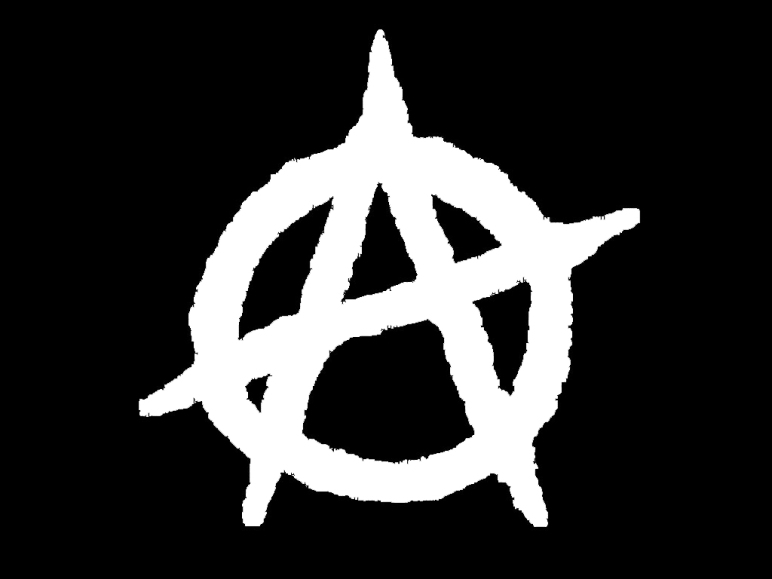
In this article I am going to give some definitions of anarchism, contrast some different schools of anarchist thought and show that the idea of freedom is essential to all of them, as it seems many anarchists these days do not see free action or free speech as that important or even desirable. I will contrast anarchism with socialism and also say a bit about capitalism. I will give some examples of where anarchism has worked, albeit sometimes temporarily, and where it has turned into authoritarianism or been defeated and why. I will also suggest how an anarchist society could deal with viruses.
Anarchism equals no government; this includes no leaders, rulers, laws or prisons, and a stateless society. That is the basic definition of it. Within that, there are various types of anarchism but it always means no government or states. A good definition I have seen, from Lexico dictionary, is ‘belief in the abolition of all government and the organization of society on a voluntary, cooperative basis without recourse to force or compulsion’. Max Nettlau in his book A Short History of Anarchism (1932-34) says about anarchism that it ‘starts from the earliest favourable historic moment when men first evolved the concept of a free life…a goal to be attained only by a complete break from authoritarian bonds and by the simultaneous growth and wide expansion of the social feelings of solidarity, reciprocity, generosity and other expressions of human co-operation’.
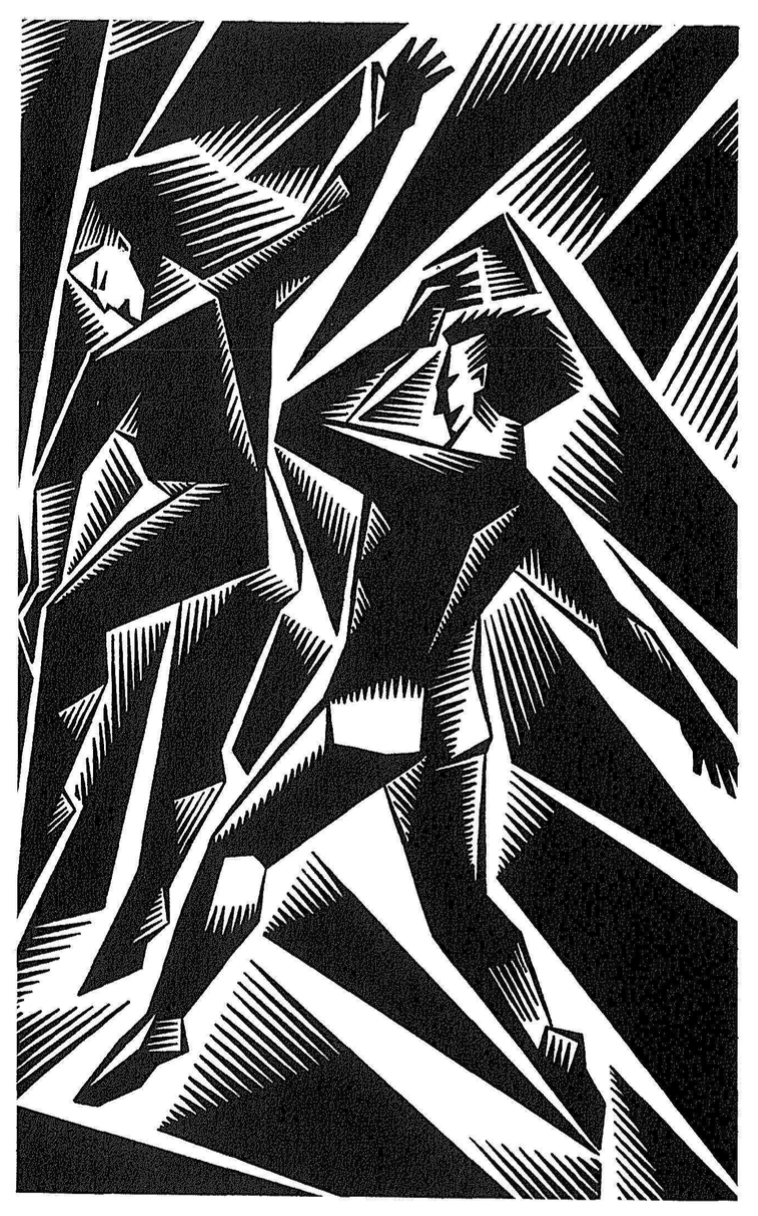
There are many schools of thought in anarchism. All of them have in common an opposition to the State and all believe that people are in fact capable of organising a society without the State that is co-operative, safe, equal and produces prosperity and abundance for all, while governments can never do that.
Anarchist communists or libertarian socialists (Russian 19th/20th century anarchist Peter Kropotkin among others) advocate the abolition of the State and capitalism in favour of a horizontal network of voluntary associations and worker-run enterprises through which everyone will be free to satisfy his or her needs without capitalism or money. They argue that any economic system based on wage labour and private property requires a coercive state (implying lack of liberty) to enforce property rights and to maintain the unequal economic relationships that will inevitably arise. Instead, local communities would make decisions collectively, with collective ownership of the means of production (raw materials, tools, machines etc.).
Alexander Berkman and Emma Goldman became anarchist-communists after seeing Bolshevik communism’s ‘devastating reality first-hand in Russia and after the Red Army’s crushing of the Kronstadt uprising’, when 5000 sailors left the Communist Party because the revolution had not achieved what had been promised and strikes broke out because of hunger, cold and economic hardship. What distinguishes anarchist communism from other forms of communism is the former’s opposition to all forms of political power, hierarchy and domination. It believes in a sudden revolution rather than a gradual change and does not advocate taking control of the State to make the transition. Errico Malatesta in the 19th Century used the word communism but is seen as an anarchist communist because he conceived communism as something to be followed voluntarily. However, I think it is unwise to associate anarchism with communism or socialism, as true anarchism is nothing like the tyrannical communism that is practised in various countries today and thus has very negative connotations, as I will show. The Anarchist Communist Federation in the UK renamed itself the Anarchist Federation some time ago, for that reason I think. I also think collective decision-making could endanger the freedom of the individual, though that may depend on how the decisions are made, which I will come to. Note the name of the anarchist website Libcom.
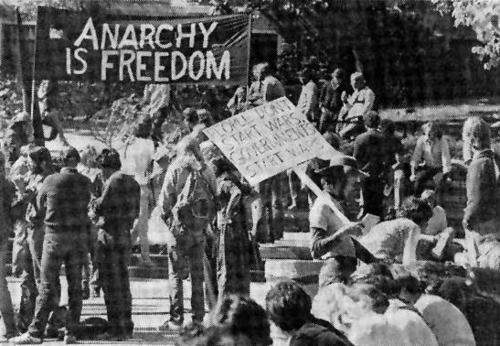
Individualist anarchists say that anarchist-communism or collectivism would suppress individuality and personal autonomy by forcing people to belong to a community and relinquish private property. Consequently, individualist anarchism tends to endorse private property and free economic competition. As in other forms of anarchism, the State has to be abolished; the individualist anarchists saw the State as the source and protector of big business’s monopoly, with a power to impose taxes, conscription to the military, laws etc., and therefore of the labouring classes’ suffering and deprivation. Individualist anarchism has sometimes been labelled right-wing anarchism, but I would say that if a society is without laws, prisons, politicians etc., it cannot be right-wing. However, I wonder how a free market can lead to equality, rights or freedom for everyone because would it not necessarily mean a society of haves and have-nots, conflict, discrimination and under-privilege of disabled etc.? Another difference between individualist anarchism and communist anarchism is its opposition to revolutionary action; the 18th/19th Century English anarchist William Godwin said the State would become increasingly irrelevant and powerless through a gradual process of reform and enlightenment. But, as I shall go on to say, the State and its leaders are not likely to want to give up their power.

Closely linked to individualist anarchism is Nihilism and Max Stirner’s Egoism. Instead of the State there would be associations or unions of sovereign individuals. For Stirner, the individual and the State ‘are in “deadly hostility” since a person exercising self-mastery is in fundamental opposition to the state whose sole purpose is to “tame, limit, subordinate the individual”. Says Nettlau about Stirner, ‘He wanted the social revolution but, since he was sincerely anarchist, his so-called egoism represented the protection the defence, which he considered it was necessary to adopt against authoritarian socialism and any statism that the authoritarians might infuse into socialism’. Stirner viewed existing society as a coercive entity that compels its members to consider the well-being of the community as a whole at the expense of individual freedom.
Mutualism lies somewhere between collectivist and individualist anarchism since it endorses forms of collective ownership – a co-operative, equitable society of worker-owners in federations – but also private property. It is a social system based on the sovereignty of the individual over herself, his affairs and her products, and was espoused by such people as Pierre-Joseph Proudhon and Benjamin Tucker. Mutualism opposes capitalism and large-scale property ownership (because both lead to exploitation and inequality) but allows small-scale private property, though not factory owners and workers or landowners and rent-payers. Under mutualism, people would exchange goods and services equitably and fairly through mutually beneficial economic contracts; there would be ‘stabilization and cheapening of the means of exchange through the establishment of the Mutual Bank’. Interest would be abolished. People can develop their own mutual aid infrastructure to ensure that people’s basic needs are met, without interference from the State. Proudhon believed this would bring about the isolation of the State and eventually its liquidation. He says the State sustains inequalities and interferes with liberty, and that to be governed is to be ‘watched over, spied on, directed, legislated, regimented, closed in, indoctrinated’. There seems to have been different types of mutualists; Tucker was an advocate of mutualism but actually ended up accepting a need for police to break strikes, to give freedom to the employer, so I don’t recognise him as anarchist; a true anarchist society cannot include an employer and worker situation. Some mutualists see a need for the State to be disbanded straight away and I would agree with this. ‘The State is symbolic of power…and from power naturally flows privilege’, says Clarence Lee Swartz.
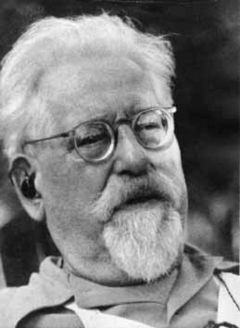
Anarcho-syndicalism was espoused by the French anarchist Georges Sorel, Emile Pouget and Rudolf Rocker (pictured) and was very operational during the Spanish Revolution 1936-39 through the CNT, though the origins can be traced back to the First International, also known as the International Workingmen’s Association (IWA), formed in 1864. This was a socialist organisation which aimed at uniting a variety of different left-wing political groups and trade unions that were based on the working class and class struggle. Anarcho-syndicalism was a development of the social aspirations most strongly held by the libertarian or anarchist wing of this. Anarcho-syndicalists encourage workers to organise independently of government, bosses and bureaucrats. Anarcho-syndicalist groups are more about hands-on solidarity and the achievement of better rights among workers (and tenants and other oppressed people) and (admirably) get involved in or help with people’s workplace issues, often within a workplace sector where networking is encouraged, sometimes encouraging industrial action. Ultimately they believe in the workers taking control of the workplaces and creating an anarchist society. From https://www.crowdfreedom.com/different-types-anarchism: ‘(Anarcho-syndicalism) proposes revolutionary change should come about through the organization of workers into horizontal confederations of unions, and the utilization of the general strike to seize control of the economy…overthrowing capitalism and the state through unionism, replacing corporate production with economic democracy internally in the unions…’.
Anarcho-primitivists reject “civilization” in favour of “wildness.” More specifically, they call for the abandonment or destruction of technology in favour of subsistence that is not based on technology. Some people have been doing it in small ways, by re-wilding, guerilla gardening etc., or in a slightly larger form in communities around the world. I like the idea of it; if we continue to plunder the earth’s resources the human race (and probably all other species) will disappear, so in that sense Anarcho-primitivism could be the most sensible type of anarchism, in theory. I think it could only ever exist in these communities, never in an entire country or the world, because people will never give up their technology which is, on the contrary, advancing all the time. But it is interesting that The Federal Bureau of Investigation apparently sees the potential of a radical environmental movement, since it has deemed eco-terrorism the number one domestic terrorist threat (https://theanarchistlibrary.org/library/anonymous-what-is-anarcho-primitivism).
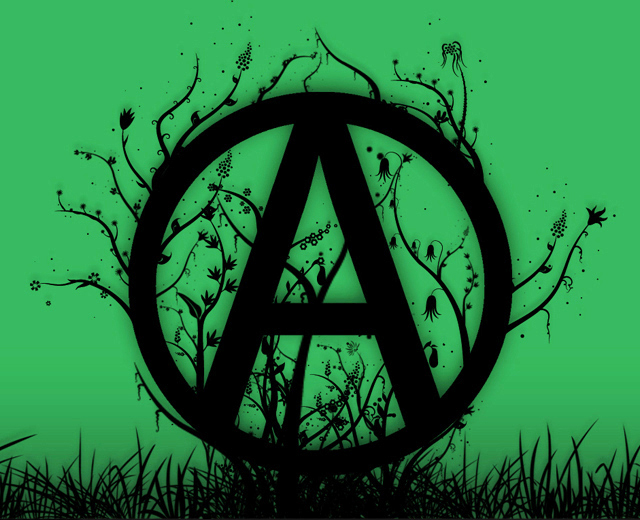
I don’t fully embrace any of these. Mutualism seems to give people the most freedom while recognising the need for a collective society and mutual cooperation but I’m not sure that the problems of the world, like over-use of natural resources and inequality, could be solved if we still have some form of capitalism however small-scale. So I would advocate a social system that protects the freedom of the individual but without the use of money and probably even without bartering as some may go without if they are not able to barter. So people would work because they want to. There would be no dictating from the community on how to live. Private property technically would not exist but nor would property be owned by the community.
All branches of anarchism are, if the ideology is followed properly, very different from socialism or communism, or at least any that has been practised in the world to date. It may be just that socialism has come to mean something different from what it was intended (state socialism and submission of the people to the State, rather than power in the hands of the people). Communist countries that exist today are state-controlled and tend to be pretty tyrannical. China and North Korea allow the people very little autonomy over their own lives and Frank Fernandez in Cuban Anarchism says, ‘After 40 years the Cuban revolution has ended in economic deprivation, desperation, sharp class divisions…and a criminal tyranny that suppresses all dissent’ (which sounds eerily familiar as regards what is happening worldwide today).
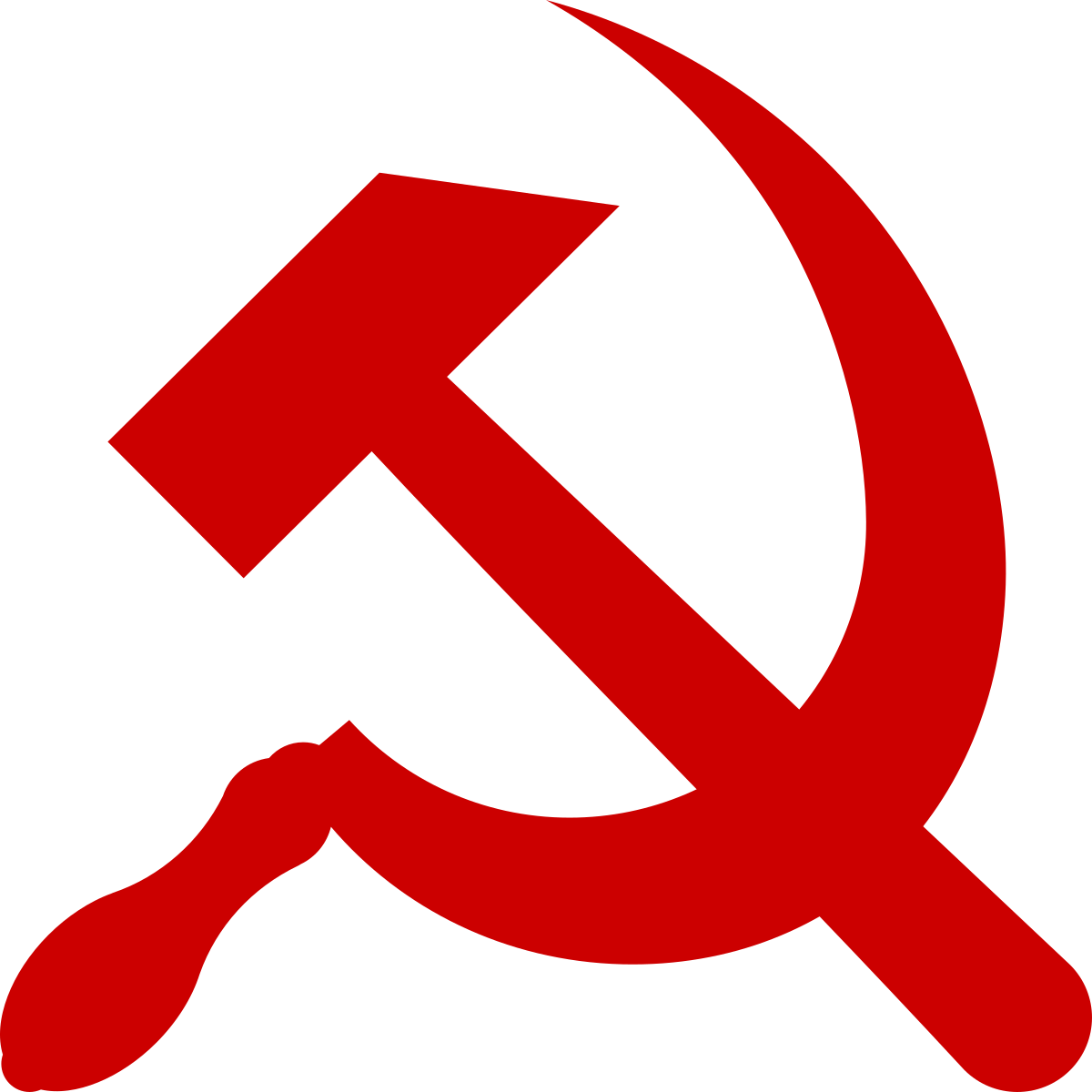
He explains that this happened because, ‘instead of handing over the fields, factories and workshops directly to the workers after expropriating them from their owners…the Cuban government placed all of the great businesses, industries, banks, transportation networks, etc., under the control of the state’. In 1959, after the revolution, the Partido Comunista Cubano took control of all the unions, saying their domination would last only until new union elections but ‘the temporary became permanent’. The Castro regime instituted unpaid overtime to workers and caused huge damage to the environment which created food shortages. And Castro insurgents created military dictatorships in Latin America who were backed by the CIA! If Nicaragua and Bolivia have less tyrannous governments they are exceptions; occasionally a leader emerges who is not power-hungry but that is rare. As Colin Ward says in Anarchy in Action, ‘And when socialism has achieved power what has it created? Monopoly capitalism with a veneer of social welfare as a substitute for social justice.’ And about Marx he says ‘He wants what we want, the complete triumph of economic and social equality, but he wants it in the State and through the State power, through the dictatorship of a very strong and, so to say, despotic provisional government, that is by the negation of liberty’.
States are not going to be agents of transformation in a good way. There do seem to be different definitions of communism and socialism, or perhaps different kinds of socialism. In his ‘Declaration of Principles of the Social Democratic Alliance’, Bakunin established the differences between authoritarian socialism and libertarian socialism that the anarchists advocated. Marx believed in the withering away of the State, but I don’t see how the latter is going to want to give up its power voluntarily, even if the leaders have good intentions at the beginning; power corrupts, with few exceptions. The State only loses its power by the people taking it back, not by a ‘withering away’. There are also varying opinions on the difference between socialism and communism. Some say socialism allows private property, communism does not. While calling themselves socialists, Proudhon and Bakunin denounced ‘communism.’ Proudhon said communism is a ‘dictatorial, authoritarian, doctrinaire system [which] starts from the axiom that the individual is subordinate…to the collectivity; the citizen belongs to the State’. Bakunin wrote, ‘I detest communism because it is the negation of liberty…necessarily ends with the concentration of property in the hands of the state’ and ‘Socialism without freedom is slavery and brutality’.
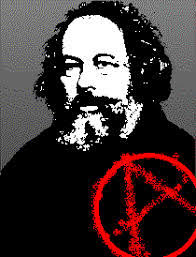

I think it is because socialism has come to mean ‘nanny state’ and capitalism has come to be associated with freedom (to exploit) that liberty and libertarianism has come to be seen as ‘right-wing’. As I have said, anarchism is very far removed from the socialism or communism that is practised in some countries, but capitalism cannot ultimately go hand-in-hand with anarchism, as an unequal society inevitably leads to poverty and homelessness for some and the need for prisons, tyranny and violence, as well as to war and ecological destruction. But we do not have to choose between freedom and equality! We can have both, and in fact we can only have freedom if we have equality and can only have equality if we have freedom. There are some interesting comments in this article: https://theanarchistlibrary.org/library/donald-rooum-and-freedom-press-ed-what-is-anarchism-an-introduction#toc2: ‘Freedom and equality are sometimes represented as antagonists, but at the extremes they coincide…complete equality implies freedom, since those who suffer restrictions cannot be the equals of those who impose them’. How very true,; so why has Freedom Press now changed its mind, now seeing a need for government controls!? If anarchists can’t handle the truth that anarchism is not leftism (and nor is it on the right) then maybe they would prefer a society where everything is decided for them, the State ‘knows best’ and nothing can be done without its permission. The powerful have brilliantly managed to divide the anarchist movement, in the same way they always try to divide and rule, one part of it going along with the socialists and obedient brainwashed ones, believing all the crap the media, government and NHS put out, the other part believing in personal autonomy, protecting the livelihoods of the general population and also protecting health in a much better way. This is all engineered. We anarchist freedom lovers are having to fight against the State and international powers alongside people we don’t always agree with on some issues, partly because there are not enough of us to organise our own struggle after capitalist power has divided us, but also because this is so big – we can only end the tyranny by uniting with the general population against the 1% or 0.1% or whatever it is, and saying ‘No!’; if we don’t, we will never get our lives back. A word about political groups, organisations, printed and online publications etc.: There are things we read that we may agree with and other things we disagree with from the same organisation; that does not mean that everything they say should be dismissed. I disagree with some of the anarchist library website, just as I disagree with some ideas I hear from anti-lockdown groups and ‘The Light’ newspaper. Take what you like and disregard the rest. Or argue about the issues; different opinions and discussion is healthy, hate, division and violence is not.
Political parties are inherently authoritarian, even if at times they may have seemed fairly radical; at their most radical they are about state socialism. Colin Ward says, about the UK, ‘At its annual conference in 1918 the Labour Party finally committed itself to that interpretation of socialism which identified it with the unlimited increase of the State’s power and activity through its chosen form: the giant managerially-controlled public corporation.’ Other countries who supposedly have a liberal government, such as Portugal and Canada, have used draconian restrictions just like some that lean to the right. There is not really a lot of difference between state capitalism and state communism; usually it’s just a matter of slightly better wages for the workers in the latter. ‘As we saw in France in 1936, Chile in 1973 or Greece in 2014, parliamentary participation and nationalisation policies do not open up space for working class movements…‘democratic’ frameworks that will always be rigged against us…’ (‘Insurrection and Production’ pamphlet, Subversion Press).
* * *
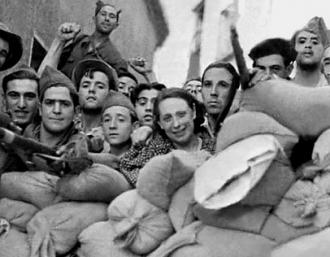
During the Spanish Revolution of 1936/37 and the experiments in collectivisation there, everyone in the militias drew the same pay and were equal with no hierarchy. George Orwell said in Homage to Catalonia, ‘there was a feeling of having suddenly emerged into an era of equality and freedom when human beings were trying to behave like human beings and not as cogs in the capitalist machine’. After the defeat of the fascist uprising in Catalunya, the CNT rank and file organised factory councils and neighbourhood assemblies, but the CNT delegates caused problems and were isolated from the movement, allying themselves to the authoritarian socialist and republican parties. This impeded the anarchist revolution. Says Peter Gelderloos, ‘One of the chief reasons the CNT leadership gave for collaborating with the authoritarian parties was that abolishing the government in Catalunya would be tantamount to imposing an anarchist dictatorship. But their assumption that getting rid of the government…meant replacing it with the CNT showed their own blinding self-importance’. They failed to grasp that the working class was developing new organisational forms, such as factory councils, that might flourish best by transcending pre-existing institutions – whether the CNT or the government – rather than being absorbed by them’.
In the 1850s and 60s there was a community on Long Island near New York called ‘Trialville’ or ‘Modern Times’. Here people lived in their own way, exchanging goods locally among themselves with labour notes, without any official authority. Instead of being divided, they were much more united than other communities, showing that liberty unites and coercion divides. The Community was based on and formed by followers of Stephen Pearl Andrews’ book ‘The Science of Society’. Also after the Civil War, monopolies grew more powerful and the community dispersed. But the ideas were taken up by others, including Tucker, who fought against statism and its interference of collectives.
In Hungary in 1956, when thousands of protesters took to the streets demanding a more democratic political system and freedom from Soviet oppression, there was no authority for weeks when the government collapsed and workers’ councils took control from the ruling Hungarian Working People’s Party (which of course was not the ‘people’s party’ at all, like all political parties). Anarchist self-discipline prevailed; the people (including criminals) stole nothing and did not get drunk!
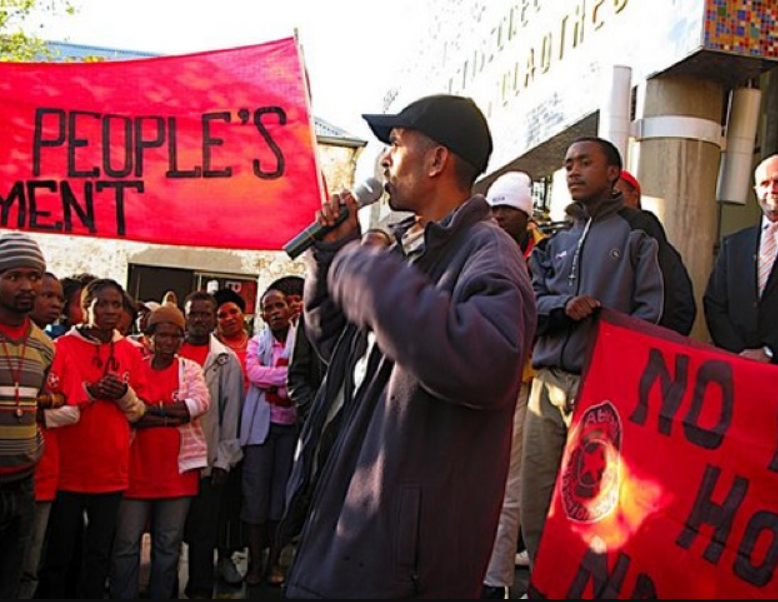
The Symphony Way squatted settlement in Cape Town in 2008/2009 organised their community without the government, having mass assemblies but also a lot of individual initiatives. They were evicted from Symphony Way in 2009 but they have continued to organise in Blikkiesdorp, under the banner of Symphony Way and have continued their struggle for land and housing. In the neighbouring government camps crime is rampant, but the Symphony Way people have night-watchmen to deal with anti-social behaviour and people feel much safer there than in the government camps and do not want to move to them even though they would get free food and water there.
The people on the island of Rotuma, north of Fiji, were traditionally stateless people. Today they exist under an imposed government but they avoid contact with it and dependence on it. They are brought up to be non-violent and villages are autonomous. The Rotuman murder rate is 2 per 100,000 people per year, three times lower than in the US. The Rotuman view of crime is of something causing harm or hurting social bonds rather than the violation of a code or statute, showing that without laws people will act according to what they think is right.
How are issues resolved in autonomous societies if not by a government making decisions and enforcing them? The people of Oaxaca in Mexico organise themselves by having street assemblies in which they vote after a period of discussion. Other communities have used different forms of consensus decision-making where they don’t stop the debate until everyone agrees; this can be preferable, if time-consuming, as the alternative (voting) means the minority loses. The Nubian farmers in Egypt operate by cooperation and mutual responsibility. Disputes are resolved in a family council, with a goal of reaching consensus. They consider it immoral to bring in the government to solve them! The Mbuti in Central Africa have lived without government, according to some since the time of the Egyptian Pharaohs. They resolve problems by having long discussions. They sometimes break up into smaller groups, then come back together in another season which requires the cooperation of the larger group. Global economic companies and mining for cellphones is destroying their region and way of life now. The Native American Hopi, a sovereign nation within the United States, use shame and levelling mechanisms to deal with people who are domineering. They overcome conflict through rituals. For them, artistic conflict resolution encourages new ways of looking at problems and avoids facilitators gaining power. In Bolivia there is an informal city called El Alto. People came here in the 1950s, when the mines and farms were shut down, and formed Juntas and then in 1979 the Federation of Neighbourhood Councils; these have pooled resources to build housing, parks, schools, clinics, housing and cooperatives and install utilities, garbage collection etc. to fill the hole that the state and private sector have left. Each junta contains about 200 people who meet every month and make decisions through public discussion and consensus decision-making. Political party leaders, merchants, real estate speculators and those who collaborated with the dictatorship are not allowed to be committee delegates. While supporting Evo Morales’ reversals of neoliberal policy, they are critical of the Movement Towards Socialism knowing they face the danger of being incorporated into the state.

These examples of self-organisation by people show that we don’t need governments or police, that we can govern and police ourselves when given the opportunity. Says Colin Ward, ‘The principal of authority is so built in to every aspect of our society that it is only in revolutions, emergencies and ‘happenings’ that the principle of spontaneous order emerges’. In an anarchist society there would probably be agreement on basic right and wrong but not laws as such. Some would say that if we had anarchism people would do what they want regardless of the harm to others; that theft, violence, murder etc. would be rife. But in an anarchist society there would be far less of those problems and when they did happen the people would make it difficult for anti-social behaviour to happen, protecting individuals, banishing perpetrators. The State, governments, socialists, and even many so-called anarchists perhaps, believe that the general population and working class are incapable of dealing with problems and making sensible decisions if left to their own devices and need to be controlled. If you don’t believe that people can make decisions for themselves without being controlled, how on earth can you believe an anarchist society is possible? I believe that the general population are wiser than these holier-than-thous think they are. Max Nettlau mentions something interesting (and disturbingly similar to what is happening now): ‘Malatesta must have suffered greatly from 1879 to 1882, as he saw Andrea Costa and many other old comrades abandoning the ideas they had fought for…’.

In the UK and elsewhere people are not encouraged to think for themselves. From school to college to job we are taught what the system wants us to think, to keep us under control and their dictatorship (under the guise of democracy) going. And this has got worse recently as schools are taking on more (formerly) parental jobs and showing ‘news’ programmes to the children. Except in certain subjects or professions, we are not encouraged to form our own opinions or look for solutions. If the State believes we may need to make decisions sometimes, that is only on the basis of ‘information’ that we are given. We are taught to subordinate ourselves to authority and to believe that it knows best. But actually science is always evolving; there are many different theories on each scientific subject and those are constantly changing through time. Yet throughout history, and very much continuing today, those who espouse an unusual or new scientific theory have been vilified, ridiculed, censored and persecuted, though very often those theories have ended up becoming accepted. It is the same with political views, philosophies around health and medicine and other subjects.
* * *
But we need governments to protect us from environmental destruction! Really?! States, including communist states, cause the exploitation of nature and environmental destruction because they are always in league with big business; China has huge companies competing on a global scale. Multinationals encourage the people to destroy their environment with adverts for cars, new ‘goods’, unnecessary goods; more profits are made by manufacturing items that will not last and companies make sure replacing is cheaper than repairing. I believe capitalism is worried about surviving because of people’s concerns about climate change, so they are claiming that they will solve the environmental crisis and are taking control of the environmental movement as much as they can. But the only thing they will ever to do is encourage solar panels and the like, which themselves use a lot of resources. Big corporations do not benefit from people re-using, buying less and sharing. Capitalism will never save our environment.

The cause of animal liberation has often been linked with the anarchist movement. Many animal rights advocates have recognised that if someone is prepared to exploit and imprison animals they are also prepared to exploit people and take away their freedom. There is an interesting comment, again strangely in the aforementioned Freedom Press article: ‘Recently there has developed an animal welfare movement which goes beyond animal welfare to animal liberation, and with it a school of anarchist thought which sees human liberation as a special case of animal liberation’. Anyone, even those who do not call themselves anarchists, who is involved in or concerned about animal liberation ought to also believe in human liberation (are we not animals too?). What happened to ‘Human freedom, animal rights – one struggle, one fight’? In fact we went further than that and changed ‘animal rights’ to ‘animal liberation’.
People in most countries in the world were allowed to be freer, in their speech and their actions, through the centuries and up until the 20th Century. This is increasingly no longer the case. Recently governments the world over have massively increased their control over the people; the only way governments (or rather a worldwide elite) have been able to do this is by telling us there is a dangerous pandemic, that it’s for our safety. Incidentally, the same thing was said to people in Germany before WW2 to encourage them to join the Nazis. As I said earlier, there is not a conflict between the welfare of the individual and that of the community, which is made up of individuals! Lockdowns, distancing etc. have been detrimental to all kinds of people, but lockdowns have a disproportionately bad effect on minorities; elderly and disabled unable to see family and friends, disabled people’s lives being made even more difficult, poorer business owners badly affected, cities (where a lot of poorer people live, many with no gardens) have had more lockdowns. Yet some who call themselves anarchists think that all the social distancing is a good thing and therefore are quite happy with the government imposing it and follow their guidance on everything, implying the government (Tory in UK but Starmer’s Labour would be no different) knows best!! I have heard people saying they are actually following NHS guidelines, but the NHS is part of the government.

On the other hand, big pharma is making huge amounts out of vaccines and out of ill-health, and the tech industry is also benefiting from lockdowns enormously; so is Amazon, Facebook etc. Lockdowns have not actually been done to benefit people’s health but for a much more sinister reason involving increasing the power of the States, the World Economic Forum etc. It is very obvious that governments are trying to destroy small businesses and benefit multinational corporations. It is also obvious that lockdowns do not work, as we still apparently have a pandemic despite them. There do seem to be some countries which are freer; Sweden, Iceland, Hungary and Latvia have had some kind of voluntary lockdown, which at least is not as bad. In Japan lockdown is illegal so they have not had a compulsory one. And there have been no more deaths per million of the population in those countries, though far less misery, destruction and death from measures imposed. Taiwan has had no compulsory lockdown but only seven deaths in total from Covid, Nicaragua has had no lockdown at all but only 167 deaths, and the Amish people in America were asked by a journalist why there has been no Covid among their people; their reply was that it’s because they don’t watch television!
An anarchist ideology should also include free movement of people. Division of the world into states often hampers this. Perhaps international travel should be stopped for three weeks during a real pandemic. But generally we all need to be free to move; that is our right, not the right of governments to restrict. Refugees and immigrants need to be free to leave countries where they are in danger or cannot live well. People in the west need to be able to leave their country, their town, their house, especially when they are living in a tyranny. I don’t see many anarchists pushing for this at the moment. Generally, anarchists have not in the past dwelt on the issue of freedom because we have, in the west, been relatively free! It was only really mentioned when campaigning against prisons, animal exploitation, civil rights. Anarchists have, however, talked a lot about free movement of people, refugees, immigration. The issue of not being allowed to go where we want (to another country, another town and sometimes even to leave our house) really ought to be a big issue for the anarchist movement. People returning to the UK from another country (often for the purpose of seeing relatives) are having to pay to isolate in a hotel with a band put on their wrist which tracks their every move. Health passports are being talked about by governments. Why is the anarchist movement not fighting against this? Brainwashed?
The curbs on free speech is also increasing at an alarming rate. Much of it is about banning what are simply alternative viewpoints on issues like natural remedies and vaccination. If a viewpoint is expressed which is hateful, censoring it (on social media for example) is not the way to get rid of it; rather, counteract it with a contrary or alternative comment. Banning the expression of views only creates a backlash and increases the prevalence of those views, just like wars do not stop terrorism but increase it.
* * *
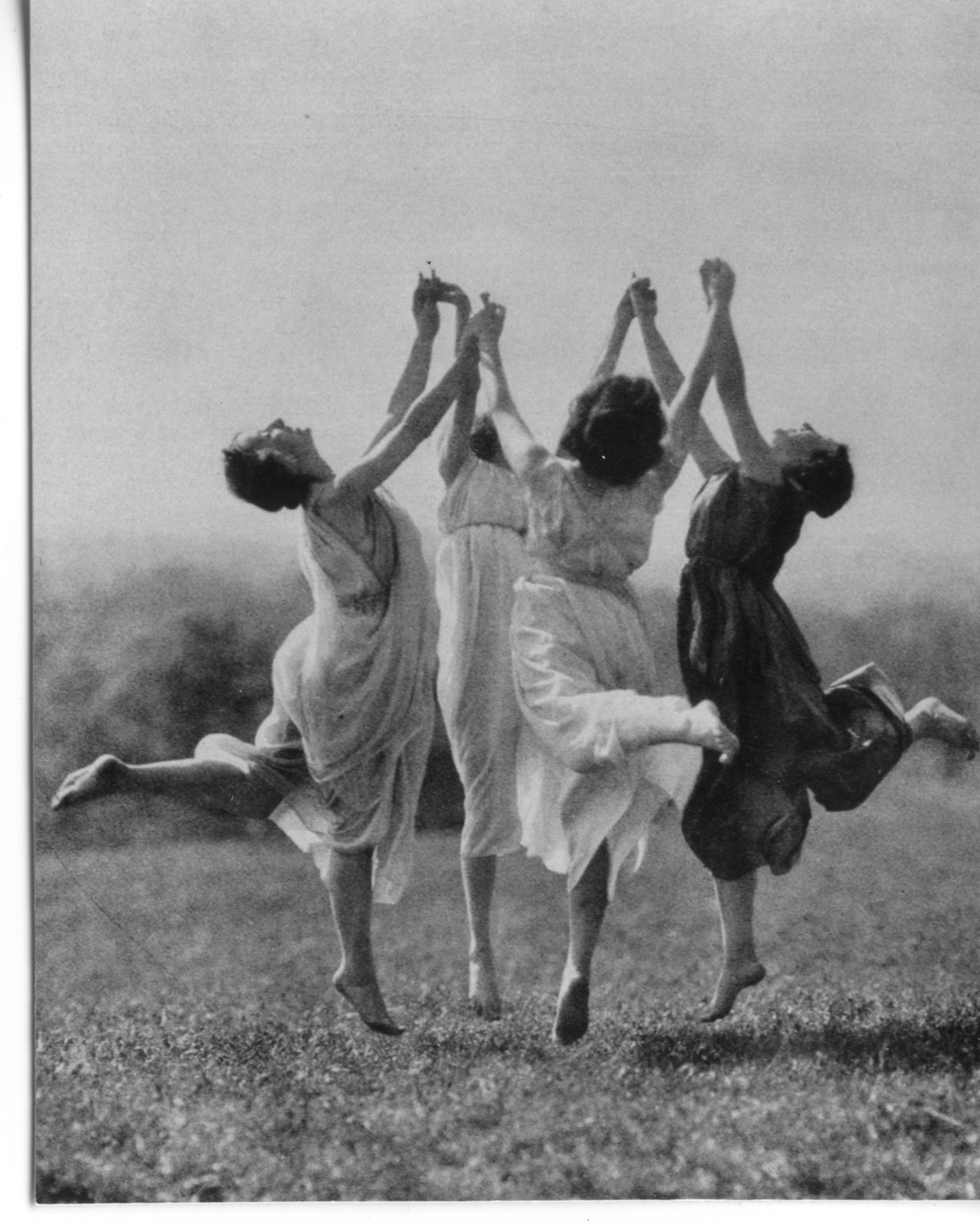
I don’t see evidence of a pandemic at the moment except for what the governments and media tell us, which is not evidence, and that some hospitals are stretched (due to staff shortages because non-English nurses have left and half the remaining nurses are isolating). Covid-19 was actually downgraded by the WHO as a pandemic back in March last year! So the reasons for lockdown must be for something else entirely (state control, surveillance, increase the wealth and power of big business etc.; in fact a ‘Great Reset’). But there do seem to be some viruses going around which are hitting the older and more vulnerable people. So how should a true anarchist advocate dealing with a pandemic if there was one, or with viruses which are always around, without loss of freedom, jobs, happiness and sanity? It would do that by encouraging healthy lifestyles with good diet, natural remedies and preventions, vitamins, more exercise and sport (instead of banning sport!) and sunshine. Some may choose not to go to very crowded indoor places unless their immune system is very good; perhaps clubs would close in January. We would shop for those people who are vulnerable or elderly, help them to go out for exercise and recreation. One important point: anarchism does not entail policing each other! I wonder if some anarchists think that snitching on your neighbours, telling people not to hug each other and putting other restraints is an anarchist way! Anarchism is about policing oneself. It includes no local government, no group of people telling others what they can and can’t do, where they can and can’t go, who they can and can’t see. Why have the rights to earn a living, have an education, socialise and have intimate relationships become unimportant because of a flu-like illness?! And perhaps if we weren’t being fed fear and propaganda and virus-obsession by the media and government, more people might realise that the virus is not really so virulent and does not need mass vaccination (the vulnerable often the ones most susceptible to damage from vaccine!). The vaccination issue is too big to go into here but the dangers of it can quite easily be found on the British Medical Journal and government’s own websites, not to mention the surveillance reasons for it.
To sum up, anarchism is absolutely necessary, because it is the only way to get a free and equal society and save the planet, and absolutely possible; people only need to realise that. And freedom is essential to anarchism. Let’s be careful that we don’t ask for anarchism but get state socialism.
* * *
‘When we look at the powerlessness…and ask ourselves why they are powerless, we have to answer not merely that they are weak because of the vast central agglomerations of power, but that they are weak because they have surrendered their power to the state.’ (Colin Ward, Anarchy in Action)
‘The functions of the State, then, were to overcome and subdue persons, secure and maintain dominion over territory, preserve itself against revolt from within and aggression from without, and, in short, to insure its existence. To do this effectively…it has had to crush, not merely the invading enemy, but likewise its own subjects, through punishment for treason, when they too strenuously differ from its policies…’ (https://theanarchistlibrary.org/library/clarence-lee-swartz-in-collaboration-with-the-mutualist-associates-what-is-mutualism)
‘Marxists and others who set up a strong government in the hope of eliminating government, do not just fail to attain their objective, but end up with more of what they were hoping to eliminate. Anarchists at least give themselves a chance of ending up with a society freer than it would otherwise have been’. ‘Reformists measure progress by how near they are to attaining power. Anarchists measure progress by the extent to which prohibitions and inequalities are reduced, and individual opportunities increased.’ (https://theanarchistlibrary.org/library/donald-rooum-and-freedom-press-ed-what-is-anarchism-an-introduction)
So in two weeks’ time we’re allowed to meet one other person we don’t live with in an outdoor area! Wow, thanks Boris! How generous to give us such freedom!
SEE ALSO:
What is real anarchism?
Anarchist against freedom
Anarchists and the Coronavirus